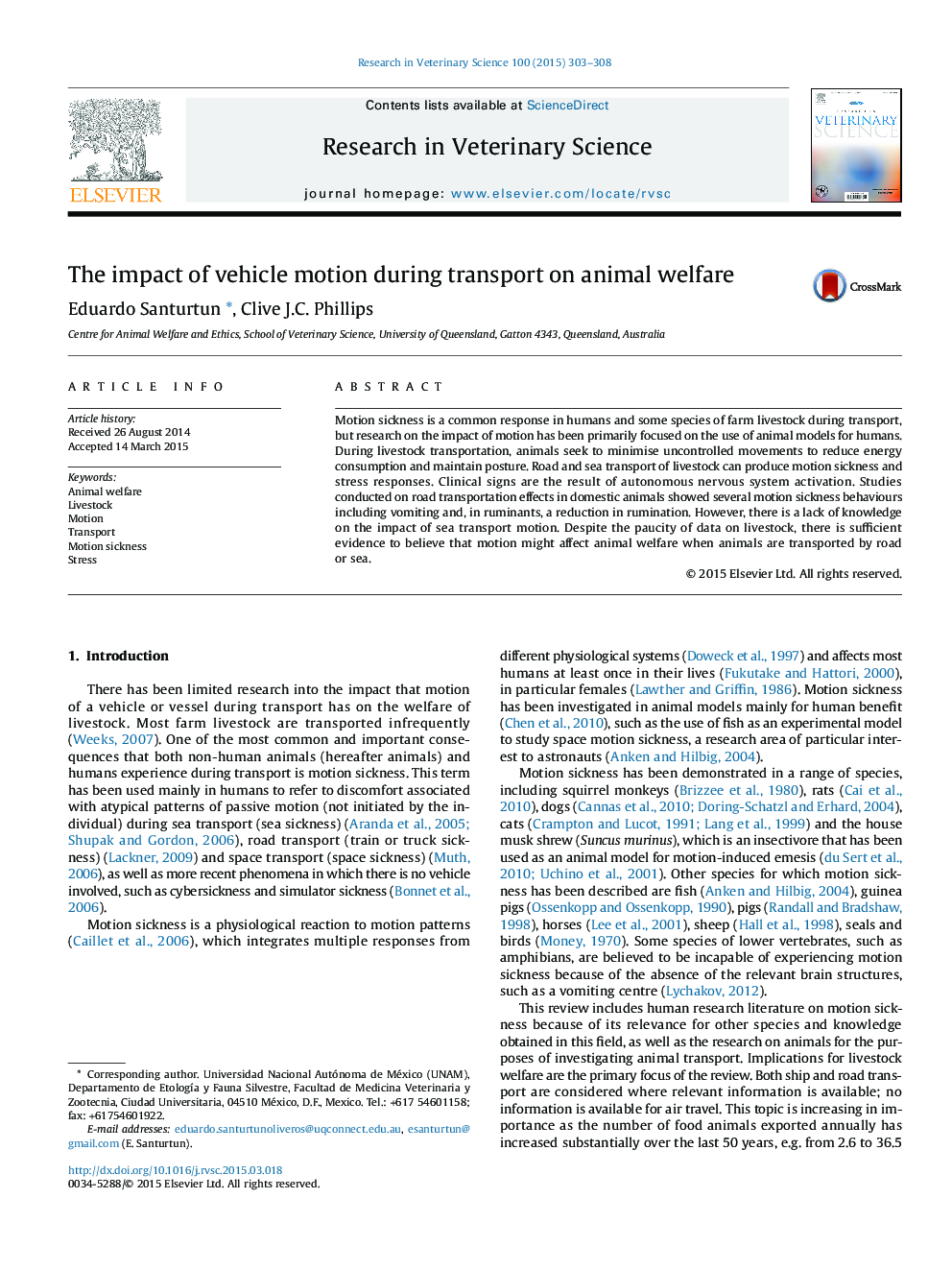| Article ID | Journal | Published Year | Pages | File Type |
|---|---|---|---|---|
| 5794725 | Research in Veterinary Science | 2015 | 6 Pages |
â¢We review transport motion impact on animal welfare.â¢Road and sea transport of livestock can produce motion sickness and stress responses.â¢Symptoms like nausea are a consequence of autonomic nervous system activation.â¢Research on livestock has occurred mainly during road transport conditions.
Motion sickness is a common response in humans and some species of farm livestock during transport, but research on the impact of motion has been primarily focused on the use of animal models for humans. During livestock transportation, animals seek to minimise uncontrolled movements to reduce energy consumption and maintain posture. Road and sea transport of livestock can produce motion sickness and stress responses. Clinical signs are the result of autonomous nervous system activation. Studies conducted on road transportation effects in domestic animals showed several motion sickness behaviours including vomiting and, in ruminants, a reduction in rumination. However, there is a lack of knowledge on the impact of sea transport motion. Despite the paucity of data on livestock, there is sufficient evidence to believe that motion might affect animal welfare when animals are transported by road or sea.
